Introduction
The Addison’s Disease-Specific Quality of Life Questionnaire (AddiQoL) is a specialized tool designed to measure the impact of Addison’s disease on patients’ quality of life (QoL). Developed in 2010 by Kristian Løvås, Suzanne Curran, Marianne Øksnes, Eystein S. Husebye, Felicia A. Huppert, and V. Krishna K. Chatterjee, the AddiQoL addresses a critical gap in endocrinology by focusing on the unique challenges faced by individuals with this chronic condition. With 84 citations on Google Scholar, it has gained recognition for its robust validation and clinical utility (Løvås et al., 2010).
Consequently, this article explores the AddiQoL’s features, applications, and importance for researchers and clinicians working in endocrinology, offering insights into its role in improving patient outcomes.
Key Features of Addison’s Disease-Specific Quality of Life (AddiQoL)
Purpose and Use
The AddiQoL’s primary purpose is to assess the quality of life in patients with Addison’s disease, a rare endocrine disorder characterized by adrenal insufficiency. Specifically, it evaluates how symptoms like fatigue, emotional distress, and physical limitations affect daily life. For instance, clinicians use it to monitor treatment efficacy, while researchers rely on it to quantify disease burden in clinical trials.
Target Population
Validated for adults aged 18 and older, the AddiQoL is suitable for:
- Young adults (18–24 years)
- Middle-aged adults (25–44 years)
- Older adults (45–64 years)
- Seniors (65+ years)
Its broad applicability makes it a versatile tool for diverse patient groups with Addison’s disease.
Structure
The AddiQoL consists of 36 items in its original version, organized into four sub-dimensions, with three additional standalone items. These cover a comprehensive range of factors affecting quality of life in patients with Addison’s disease. Specifically, the questionnaire addresses:
- Fatigue (8 items): Measures energy levels, exhaustion, and the impact of fatigue on daily functioning.
- Emotions (8 items): Evaluates emotional health, including mood, anxiety, and psychological well-being.
- Symptoms (11 items): Assesses physical symptoms specific to Addison’s disease, such as weakness or pain.
- Miscellaneous (6 items): Covers sleep quality, sexuality, and the impact of intercurrent diseases.
- Standalone Items (3 items): Includes “nocturia,” “dry skin,” and “gaining weight,” which are not tied to any sub-dimension.
Each item uses a Likert scale (1–6), where higher scores indicate better quality of life. This structure ensures a comprehensive assessment of the patient’s experience.
Scoring Method
The AddiQoL employs a Likert scale (1–6) for scoring its 36 items, with responses reflecting either frequency or severity.
- For frequency-based items, scores range from 1 (none of the time) to 6 (all of the time).
- For severity-based items, scores range from 1 (strongly disagree) to 6 (strongly agree).
In items phrased as negative statements, the scoring is reversed, ensuring that higher scores consistently indicate better quality of life. The total score is calculated across all items, with no specific cut-off thresholds defined. Instead, clinicians and researchers use the scores to track changes over time or compare quality of life across patient groups.
Administration Format
The AddiQoL takes 10–15 minutes to administer, making it highly efficient. It can be conducted via:
- Paper-based forms
- Digital (Online) platforms
Its self-administered format, requiring no specialized training, enhances its practicality for busy clinical environments.
Applications of Addison’s Disease-Specific Quality of Life (AddiQoL)
The AddiQoL serves multiple purposes in clinical and research settings:
- Screening: Identifies patients with significant quality-of-life impairments.
- Monitoring: Tracks changes in QoL during treatment or disease progression.
- Research: Supports clinical trials by providing a standardized measure of patient-reported outcomes.
For instance, clinicians can use the AddiQoL to tailor glucocorticoid replacement therapies, while researchers might employ it to evaluate novel interventions.
Languages and Availability
To facilitate global use, the AddiQoL is available in:
- English
- German
- Other languages (Norwegian, Swedish, Italian and Polish)
The AddiQoL is not freely available for all uses and requires permission from the authors or affiliated institutions for access. Specifically, it is free for non-commercial use, such as academic research or clinical practice, provided permission is obtained. For commercial applications, a proprietary license applies, and users must contact the authors to discuss terms. To request access or clarify licensing, reach out to Kristian Løvås at kristian.lovas@helse-bergen.no. This structure ensures the questionnaire remains accessible for research and clinical purposes while protecting its proprietary status for commercial use.
Reliability and Validity
The AddiQoL is highly reliable and valid, boasting a Cronbach’s alpha of 0.95, indicating excellent internal consistency. Validation studies, such as those published in 2010 and 2012, confirm its sensitivity to Addison’s disease-specific challenges (Løvås et al., 2010; Øksnes et al., 2012). Moreover, its test-retest reliability ensures consistent results over time, making it a trusted tool for longitudinal studies.
Limitations and Considerations
Despite its strengths, the AddiQoL has a few limitations:
- Self-Report: Patients may underreport symptoms due to social desirability bias.
- Cultural Bias: Some items may not fully resonate across all cultural contexts, requiring adaptation.
- Limited Validation Studies: While robust, additional studies in diverse populations could further strengthen its applicability.
Other Versions and Related Questionnaires
- Alternative Versions of AddiQoL
The AddiQoL is available in its original 36-item version, as well as two shorter forms: AddiQoL-30 (30 items) and AddiQoL-8 (8 items). These versions offer flexibility for time-constrained clinical or research settings while maintaining focus on Addison’s disease-specific quality of life.
- Complementary Questionnaires
Several questionnaires complement the AddiQoL, including: Psychological General Well-Being Index (PGWB), Short-Form-36 (SF-36), Quality of Life-Assessment of Growth Hormone Deficiency in Adults (AGHDA), Acromegaly Quality of Life Questionnaire (AcroQoL), CushingQoL (for Cushing’s syndrome).
Additional Resources
For more information on the AddiQoL and to access the full questionnaire, visit the following resources:
- Access the questionnaire by contacting Kristian Løvås at kristian.lovas@helse-bergen.no.
- For additional resources, check Università di Torino research or Glucocorticoid Treatment and Quality of Life in Addison’s disease.
Frequently Asked Questions (FAQ)
- Who can use the AddiQoL?
Clinicians, researchers, and healthcare providers use the AddiQoL for adults aged 18 and older with Addison’s disease. - How long does it take to complete the AddiQoL?
Patients typically take 10–15 minutes to complete the 36-item questionnaire, suitable for clinical and research settings. - How is the AddiQoL administered?
It can be administered via paper or digital formats (online), offering flexibility for diverse environments. - Is there any cost to using the AddiQoL?
The AddiQoL requires permission from the authors.
A word from ResRef about Addison’s Disease-Specific Quality of Life (AddiQoL)
The Addison’s Disease-Specific Quality of Life (AddiQoL) offers a reliable, validated, and comprehensive tool for assessing quality of life in patients with Addison’s disease. Whether you are a researcher evaluating disease impact or a clinician improving patient care, the AddiQoL reveals critical areas that need attention. Consequently, it leads to better outcomes and informed treatment decisions.
References
- Løvås K, Curran S, Oksnes M, Husebye ES, Huppert FA, Chatterjee VK. Development of a disease-specific quality of life questionnaire in Addison’s disease. J Clin Endocrinol Metab. 2010 Feb;95(2):545-51. doi: 10.1210/jc.2009-1711. Epub 2009 Dec 16. PMID: 20016050. (link)
- Øksnes M, Bensing S, Hulting AL, Kämpe O, Hackemann A, Meyer G, Badenhoop K, Betterle C, Parolo A, Giordano R, Falorni A, Papierska L, Jeske W, Kasperlik-Zaluska AA, Chatterjee VK, Husebye ES, Løvås K. Quality of life in European patients with Addison’s disease: validity of the disease-specific questionnaire AddiQoL. J Clin Endocrinol Metab. 2012 Feb;97(2):568-76. doi: 10.1210/jc.2011-1901. Epub 2011 Nov 16. PMID: 22090270. (link)


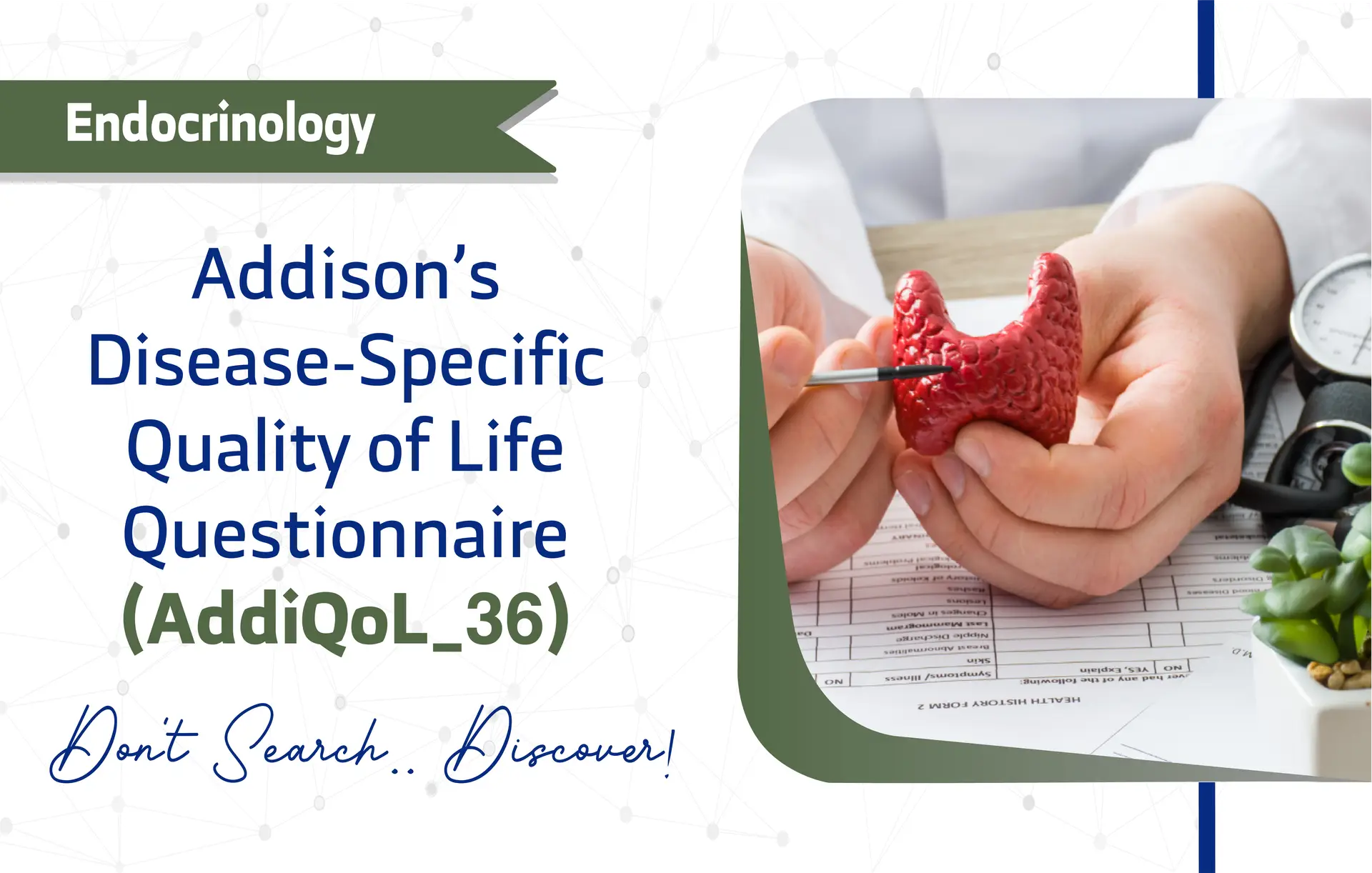

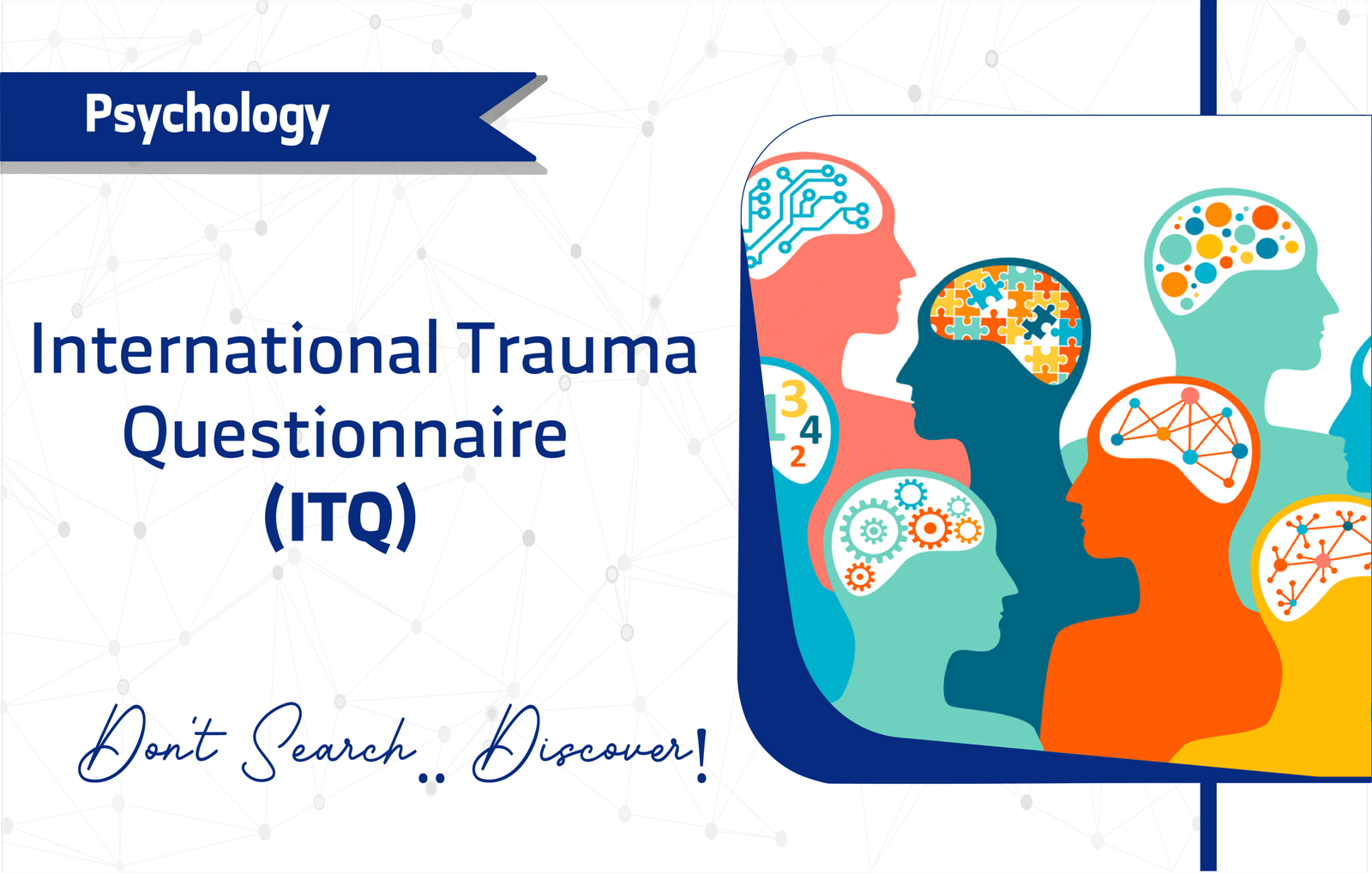
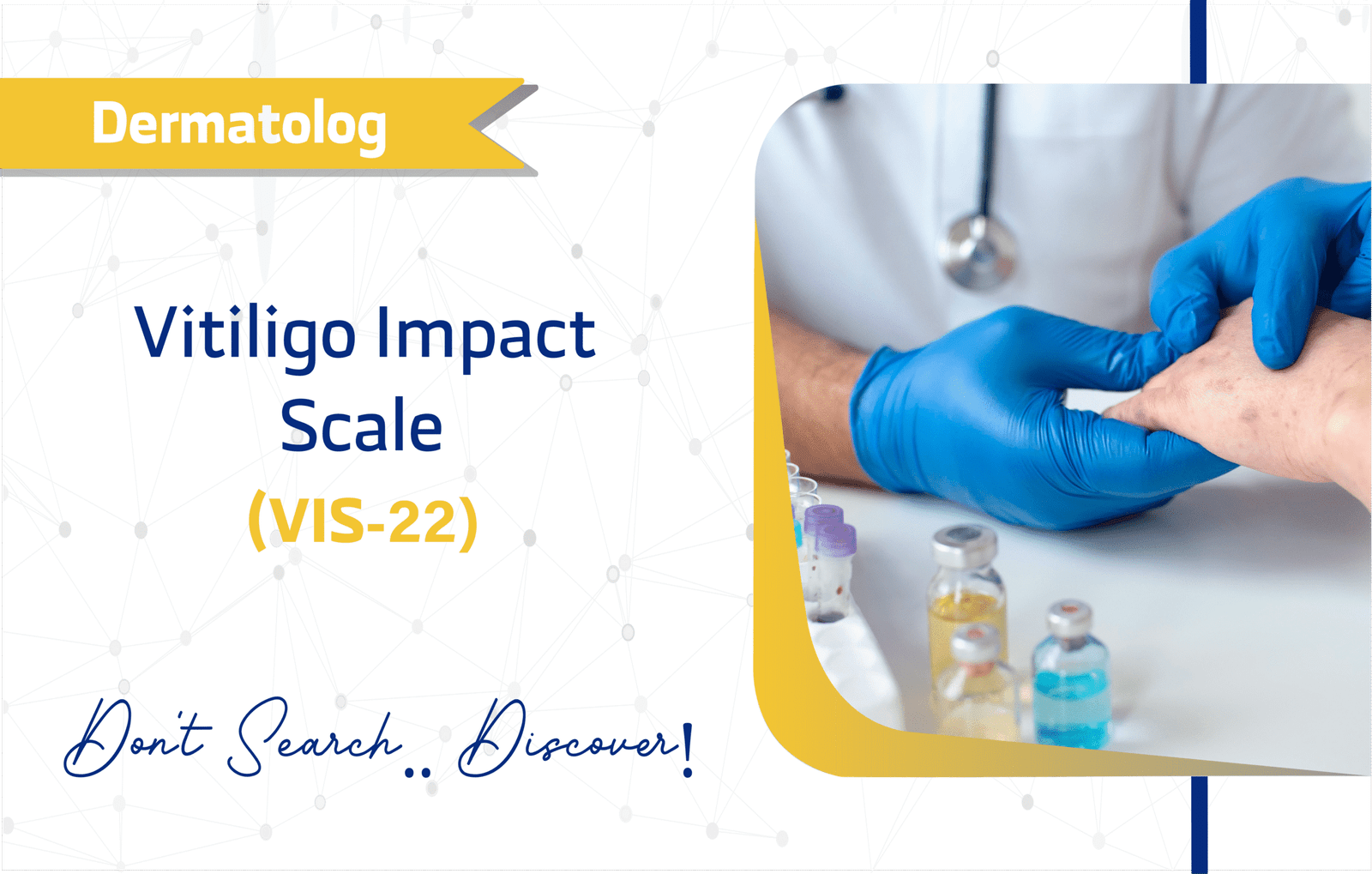
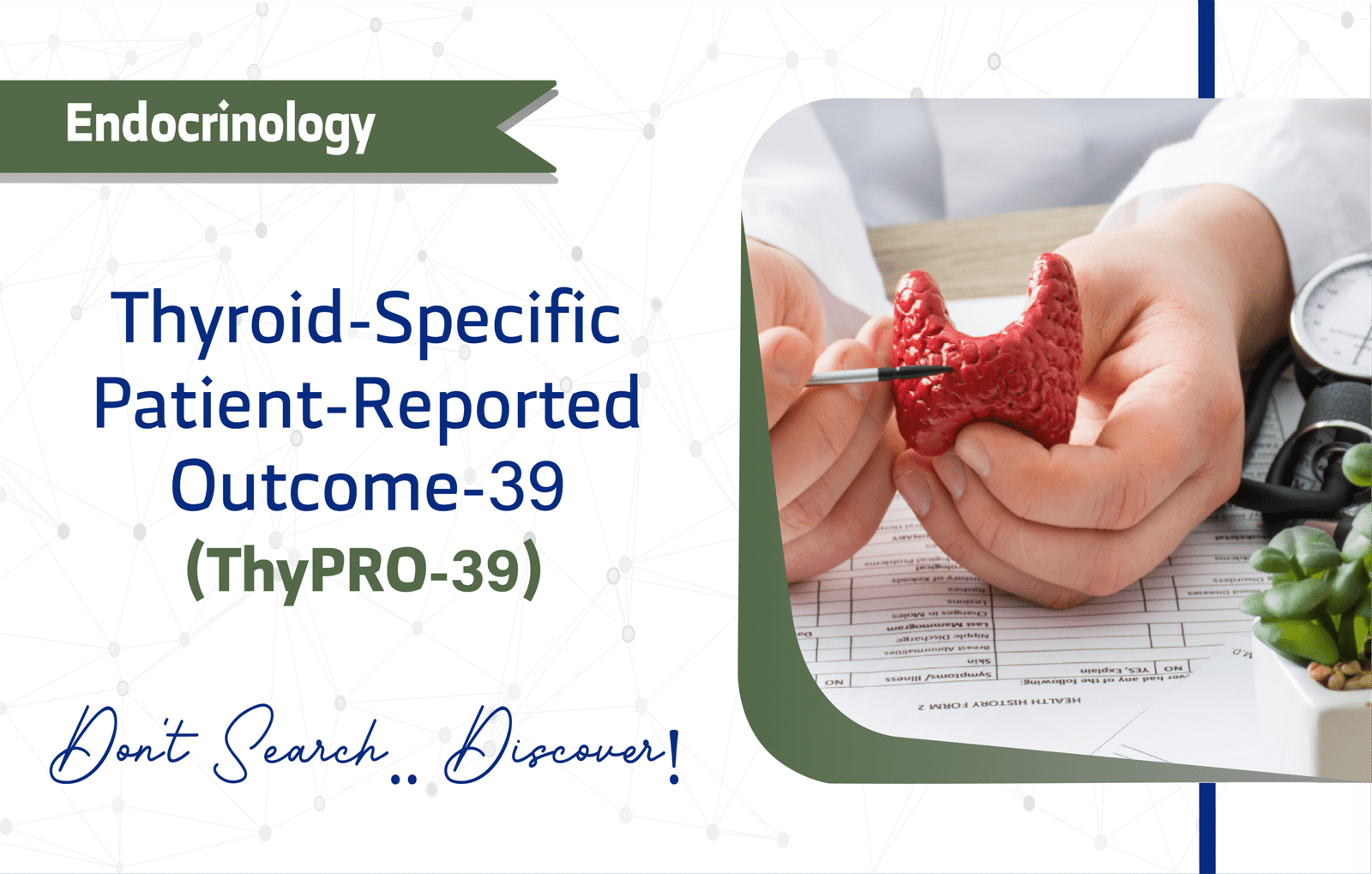
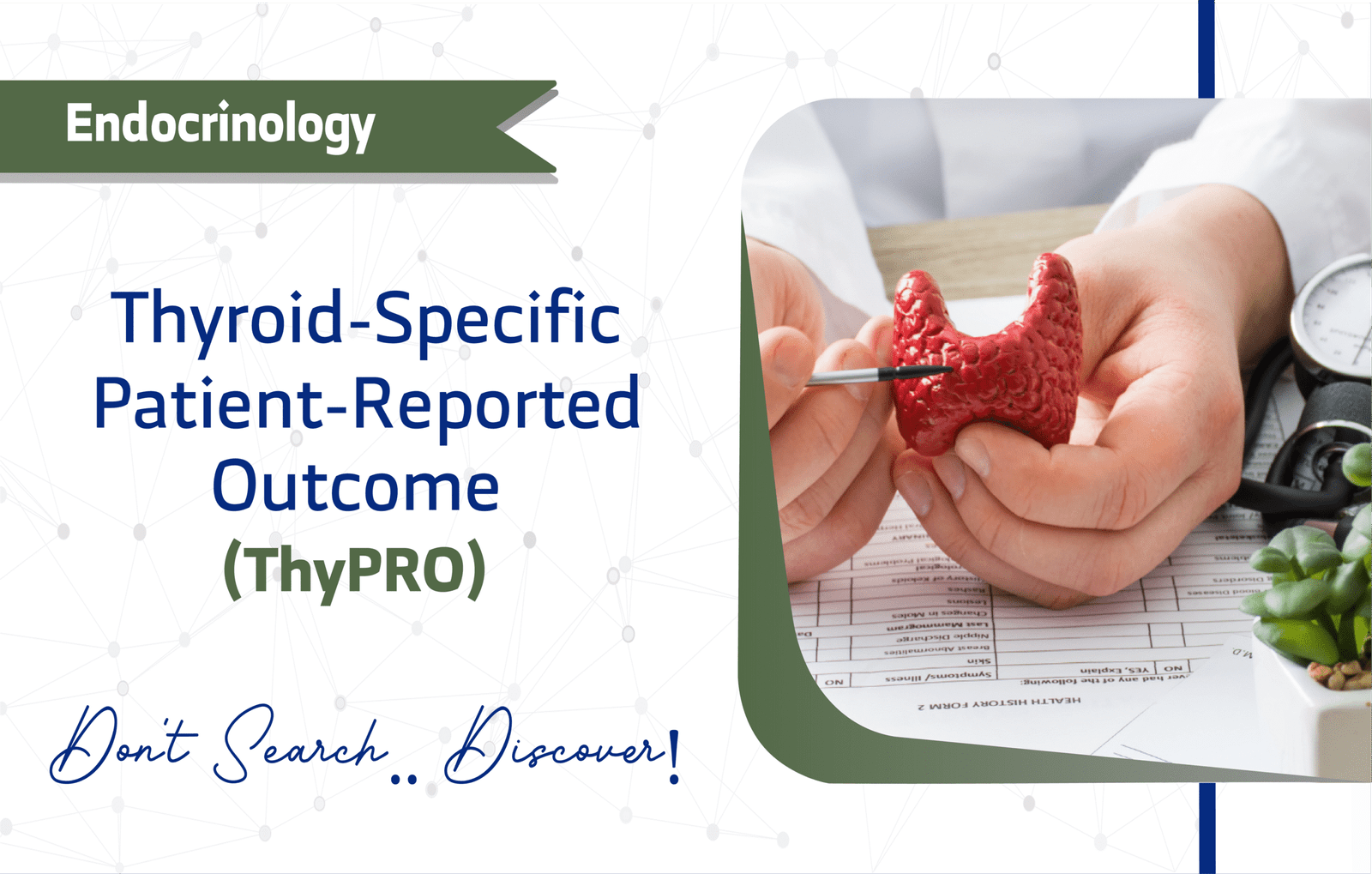
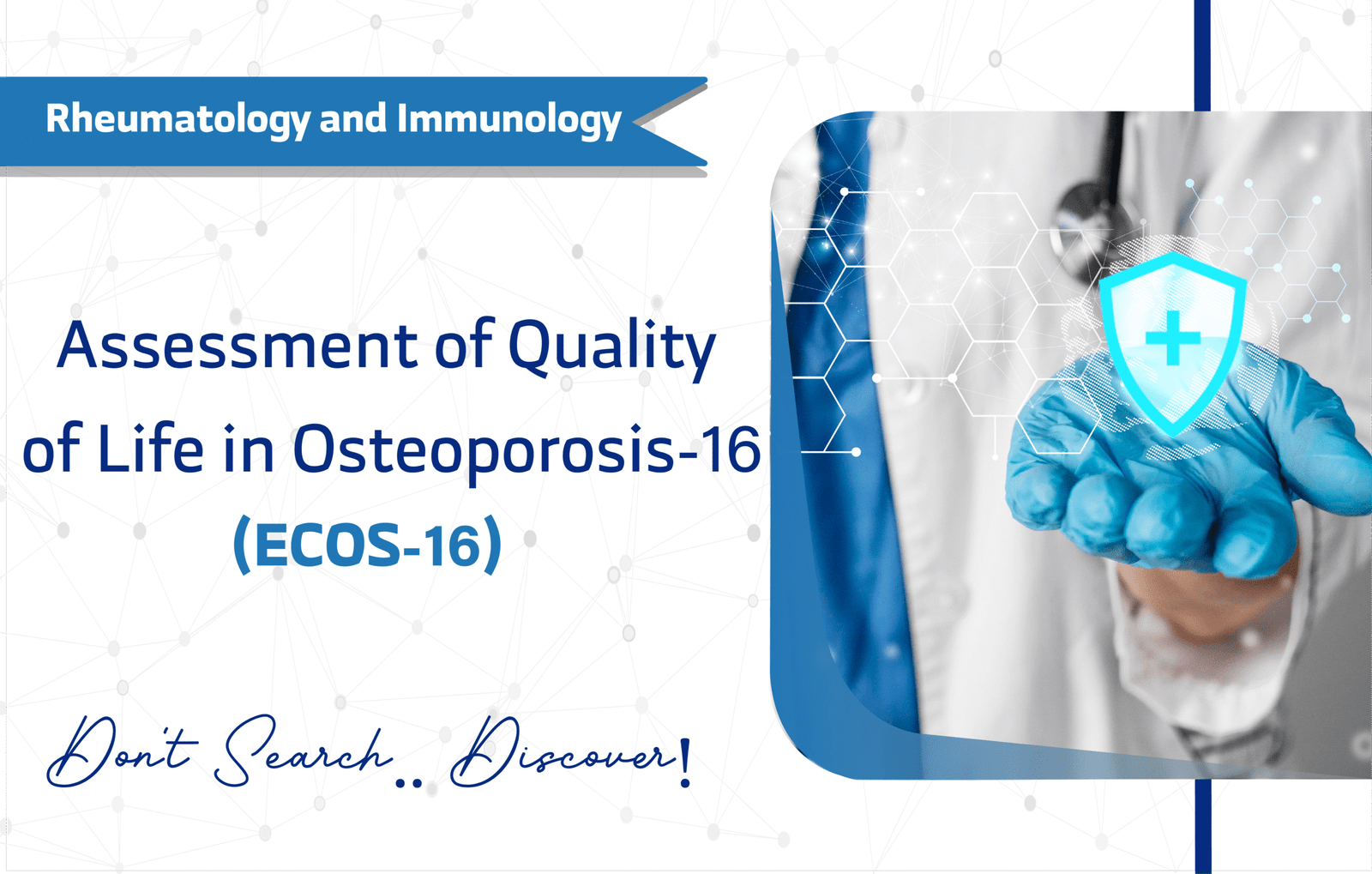
1 thought on “Addison’s Disease-Specific Quality of Life (AddiQoL): A Full Guide for Researchers and Clinicians”
What’s Happening i am new to this, I stumbled upon this
I have discovered It positively useful and it
has helped me out loads. I am hoping to give a contribution & assist other users like its aided
me. Good job.